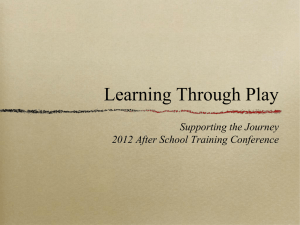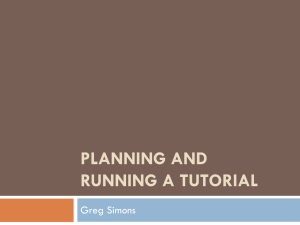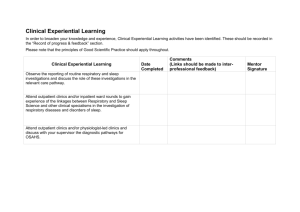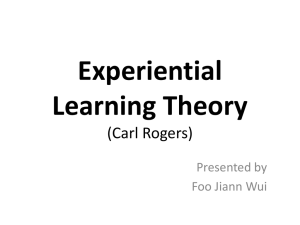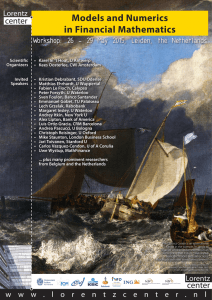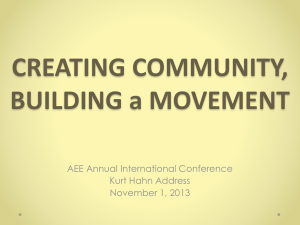Integrating Experiential Learning with Doctoral
advertisement
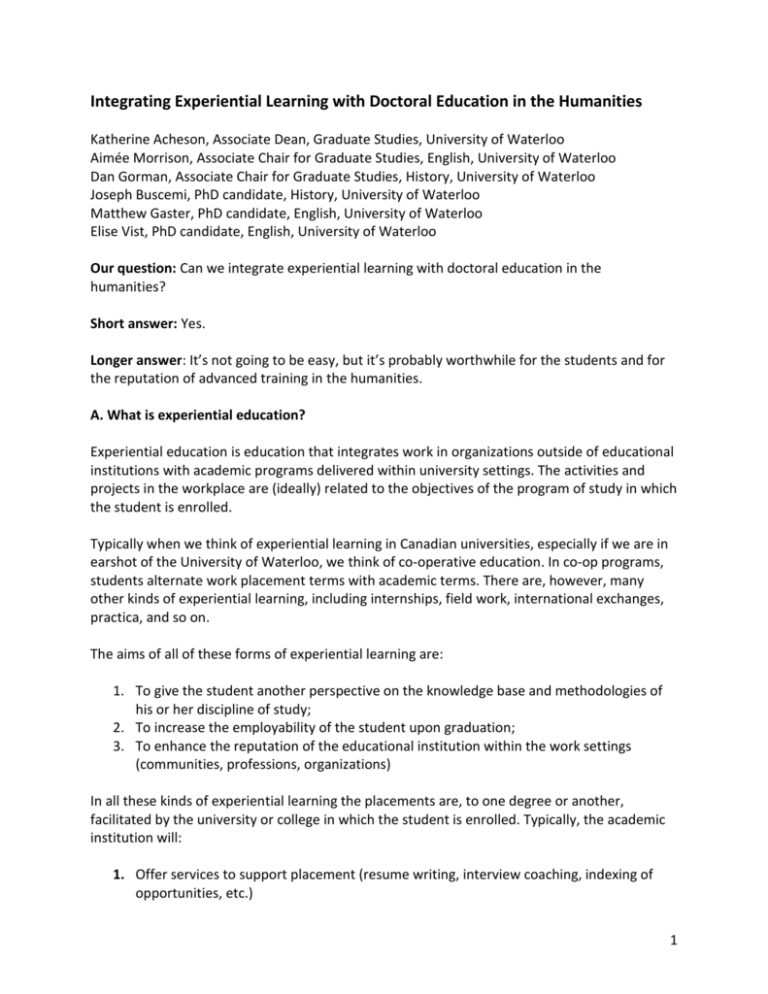
Integrating Experiential Learning with Doctoral Education in the Humanities Katherine Acheson, Associate Dean, Graduate Studies, University of Waterloo Aimée Morrison, Associate Chair for Graduate Studies, English, University of Waterloo Dan Gorman, Associate Chair for Graduate Studies, History, University of Waterloo Joseph Buscemi, PhD candidate, History, University of Waterloo Matthew Gaster, PhD candidate, English, University of Waterloo Elise Vist, PhD candidate, English, University of Waterloo Our question: Can we integrate experiential learning with doctoral education in the humanities? Short answer: Yes. Longer answer: It’s not going to be easy, but it’s probably worthwhile for the students and for the reputation of advanced training in the humanities. A. What is experiential education? Experiential education is education that integrates work in organizations outside of educational institutions with academic programs delivered within university settings. The activities and projects in the workplace are (ideally) related to the objectives of the program of study in which the student is enrolled. Typically when we think of experiential learning in Canadian universities, especially if we are in earshot of the University of Waterloo, we think of co-operative education. In co-op programs, students alternate work placement terms with academic terms. There are, however, many other kinds of experiential learning, including internships, field work, international exchanges, practica, and so on. The aims of all of these forms of experiential learning are: 1. To give the student another perspective on the knowledge base and methodologies of his or her discipline of study; 2. To increase the employability of the student upon graduation; 3. To enhance the reputation of the educational institution within the work settings (communities, professions, organizations) In all these kinds of experiential learning the placements are, to one degree or another, facilitated by the university or college in which the student is enrolled. Typically, the academic institution will: 1. Offer services to support placement (resume writing, interview coaching, indexing of opportunities, etc.) 1 2. Monitor working conditions and consult regularly with employers, hosts, and students to make sure everyone is happy 3. Try to ensure that work experience (of whatever sort) is cumulative and that students reflect on what they learn in their placement. B. What could experiential learning add to doctoral education in the humanities? Experiential learning for our doctoral students has to potential to: 1. 2. 3. 4. Increase students’ understanding of the relevance of their research Raise students’ confidence in communicating their skills and knowledge Inspire new dimensions or approaches within students’ research projects Help students identify the skills they might need to acquire in order to move outside of academia upon graduation 5. Improve the public’s understanding of the unique and specialized skills and ideas we possess. 6. Enhance the reputation of advanced research in the humanities in the public eye C. What forms could experiential learning in doctoral education in the humanities take? In addition to traditional exchange programs, study abroads, and internships, some examples of what might be possible for experiential learning in the humanities PhD include: 1. PhD, co-op mode: For disciplines in which there are opportunities for employment as instructor, designer, or manager, we could build programs that would require three coop work terms in academic, corporate, government, and non-profit settings. For instance, an English program might combine placements in teaching communications (in academic or corporate settings) and in positions in corporate, government, and nonprofit settings that have complex communication design needs. 2. PhD in Applied X: For disciplines in which there are potential institutional settings for graduates (hospitals, museums, galleries), we could build programs with research practica which would require two or three terms in an organizational setting. For instance, a Philosophy program might place students in a hospital ethics office as part of their research training; a History program might do the same with a museum. 3. PhD for Extroverts: For disciplines in which there are potential opportunities for business start-up, small business leadership, or commercial products, a program could provide sponsorship for students to be mentored by successful professionals. At Waterloo, for instance, the Fine Arts department sends MA students on a six-week posting in which the student works with a successful professional artist, learning the business end of art. D. What is needed to get started? 2 To work well, programs that integrate experiential learning with PhD education will need infrastructure and support as follows: capacity to cultivate relationships with placement hosts, monitor happiness and ensure learning objectives are met; ability to comply with regulations about employment, internships, workplace safety, benefits, insurance, etc; flexibility in delivering the academic components of the programs (staffing, space, administrative support), as placements will have to be taken up year round; willingness from students, administrations, and faculty to work through the kinks as programs get off the ground. 3

